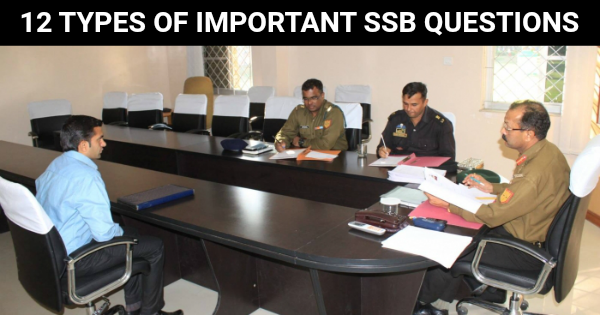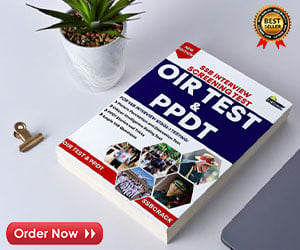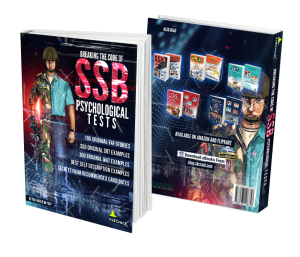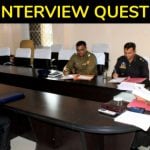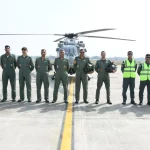Through all the different questions, the interviewing officer at SSB is silently trying to gauge your personality, how you work and your ability to deal with stress. It will be impossible for someone to tell you exactly what they are looking for, but there are certain aspecats you could work on. Most importantly, as a defence aspirant, you need to have a sense of intuition such that you can read between the lines as the interviewing officer posts questions for you and be intelligent in answering them.
A judgment call needs to be made every time in order to do well in the process. Most of the aspirant attend the SSB interview without any preparing for the PI, you can answer most of the PI questions if you are good speaker and have clarity of thoughts, but most of the aspirants are not able to perform well during personal interview even though they know what kind of questions they are going to face and what importance these questions hold in the complete SSB interview assessment. Below we have picked some important areas from which you could face a few questions at the SSB.
- Family background
One of the most common and primary questions asked during the SSB interview is the family background of the defence aspirant. Right from the time a child is interviewed for admission to schools to his or her job interviews, this question continues to be an important one. Why is this so? This is because while we are growing up, the family has the maximum influence on us.
According to studies, from birth till the age of seven, a child is influenced by the mother’s emotions. For the next seven years, it works on the actions taken up by the father. Thereafter, the personality of the child develops which is again the result of the family and the environment of upbringing. The family background thus speaks volumes about the kind of personality one has.
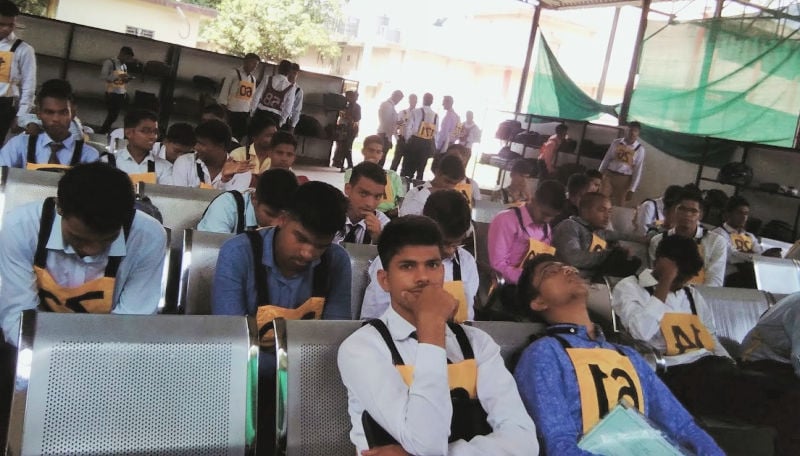
- Mother or the Father?
It is a common theory that girls tend to take the action side of the father while a boy is more inclined to the emotional aspects of the mother. Thus, this tendency to be more like one of the parents than the other could have an impact on the personality you carry. Whether you are emotional in nature or whether you prefer to show your worth with actions is one of the conclusions drawn from it. So, this could be an important question in an interview for observing your behavioral skills.

- Independence
Are you independent in your actions? Can you take decisions independently at work? Or do you always need to rely on someone else’s judgments in order to perform well? This is one question that the interviewing officer has in mind and expresses it by asking about your daily routines and schedules are like. Independence is an important trait to have and can prove useful for your professional life. During our childhood, we are extremely and completely dependent on our parents of the family for support. This is gradually withdrawn from our lives as we grow up. This removal of support happens at different stages, in different phases. So when the officer repeatedly asks you about your daily life, the kind of work you do and the schedules you follow, this is the question he wants to be answered. Your routines can also speak volumes about your punctuality, how organized you are in your work. So, make sure you answer these questions with care.
- Social Circle
The social circle is an underrated part of the SSB interview questions. Often it happens that people don’t pay much attention to it and tend to answer it casually. But it has a bigger influence on your life than what you would imagine. The kind of friends you have, the intensity of friendships, how much time you spend with them, how long your friendships last are important points to focus on during the interview. It reflects upon the kind of person you are and how well you can adjust in a social group. Another important query can be what are the things that you look for in a friend before establishing companionship?
- Deference
Deference is an important trait to have. This is again something that we learn from our family ambiance or schooling days. If you know how to respect elders and thus cooperate with them, you are in general holding a good personality. Having a sympathetic attitude for everyone, showing empathy to people in need, being generous are some of the qualities that the interviewer is looking forward to in you. The interviewing officer might ask you different questions in order to draw a conclusion about how well you respect others, both peers, and seniors and your ability to work in coordination with others.
- Who do you look up to?
Who do you look up to in life? Who is your role model? Who do you want to emulate in your actions in daily life? This is yet another question drawing light on your personality. Having a role model means you admire someone enough to follow them and carve your life around the same virtues, qualities or discipline. Once you have a real-life hero like that, consciously or unconsciously, you are following his or her footsteps. Whether you know it or not, whether you accept it or not, this real-life hero is in your life in different ways. This has two major implications. One is, you will be following a certain type or quality or traits and secondly, you prefer these kinds of qualities over the others. This gives us a lot of information about the kind of personality one has.
- Team activities
How often do you take part in team activities in your life outside of work? Do you feel competitive in such cases? Are you able to coordinate with the members of your team? These questions can go a long way in determining your team spirit. Often, participation in group tasks speaks volumes about how well you can adapt to changes in the team, strategies and the likes. Also, how well you react to a win or a loss also determine your personality.
- Dealing with failures
Taking the previous concept forward, acceptance of failure is often an important virtue. What happens when you encounter a failure? The first step would be accepting it, getting on with it. Next, you analyze where the work went wrong, regroup with your teammates and ensure that this is not repeated in the future. This is the sequence followed when failure cannot be avoided. The interviewer would want to know how well you are able to abide by this order and whether you can accept blame for your mistakes or not.
- Leadership and responsibilities
Next up is an important test of your personality. You have to be very careful while answering questions about leadership. Every company or organization would want to hire a leader, whether the leadership skills are to be used immediately or later in the career. Taking responsibility willingly, managing a team assigned to you, being able to give instructions and follow them when required are some of the values a good leader must have.
- Hunger for knowledge
It is one thing to have a very qualified person recruited for a particular job. It is a whole other advantage to have a person who wants to keep learning all the time. Every individual should have a certain level of curiosity and the zeal to keep learning. This indicates that you are able to use your current knowledge to do your work, but also keep adapting in order to expand your knowledge base to improve the quality of work delivered.
- Persistent
What would be a better choice for recruitment: A person who tries and gives up on being unsuccessful or a person who is persistent and won’t give up till the goal is achieved? The answer is pretty simple. The second kind is the one people want in their teams. It takes a lot of courage, determination, and conviction to keep doing the same thing till the milestone is achieved. Thus, when the interviewer asks you similar questions, ensure that you clearly voice your ideas of being a persistent worker who is ready to work hard in situations of fatigue.
- Why do you want to be here?
This is again one of the most popular questions in any interview. Why do you want to work in that particular organization? Most people make the huge mistake of preparing a strategic answer for this question, usually borrowed from someone, in order to impress the interviewer. But, the person sitting opposite to you knows how to read your eyes and your body language. This answer has to be genuine, expressing a clear and honest interest of working there. This could be the deciding question for your selection, so think twice before answering it.
While these are some of the guidelines followed for answering the questions shot at you during the interview, there is a bigger trait that is most desirable. One can stress enough on the importance of intuition during an interview. Being able to think independently, take decisions on the spot are important qualities to have. More importantly, how you work spontaneously, having a presence of mind will help you through this selection process and later likewise in your work life. Above all, it is essential to maintain a calm and cool head to have a positive impression on the interviewer.
IMPORTANT – Download eBooks for SSB Interview Preparations
- Thematic Apperception Test – TAT
- Lecturette Topics Part-1 eBook [100 Topics]
- Word Association Test – WAT
- Situation Reaction Test – SRT
- Officers Intelligence Test – OIR
- Current Affairs for All
Defence Exams and Interview Books:

